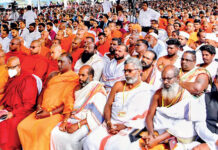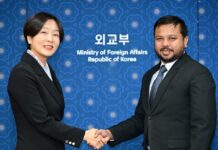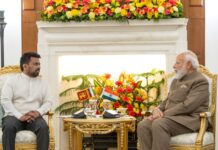The National Peace Council of Sri Lanka has emphasized the need for credible and inclusive reconciliation mechanisms that are acceptable to all communities in the country. This call comes as Sri Lanka continues to face international scrutiny at the United Nations Human Rights Council (UNHRC) in Geneva over its post-war reconciliation efforts.
During his recent address at the UNHRC, Foreign Minister Vijitha Herath reiterated Sri Lanka’s commitment to strengthening domestic mechanisms within the constitutional framework to address long-standing issues such as missing persons, human rights violations, war crimes, land occupation, and military presence in the north and east. He emphasized that institutions such as the Office on Missing Persons (OMP), the Office for Reparations, and the Office for National Unity and Reconciliation (ONUR) would be reinforced to achieve these objectives.
However, Sri Lanka’s reliance on national mechanisms rather than international interventions has drawn criticism from segments of the Tamil community and global human rights organizations. The government had previously rejected UNHRC Resolution A/HRC/57/L.1, which authorized the Office of the High Commissioner for Human Rights (OHCHR) to collect evidence for potential war crimes trials. This move has raised concerns about the credibility of Sri Lanka’s domestic reconciliation initiatives.
The National Peace Council has highlighted the importance of the recommendations made by the Presidential Commission to Investigate Findings of Previous Commissions of Inquiry on Human Rights (Nawaz Commission), established in 2020 by former President Gotabaya Rajapaksa. Among its key proposals is the creation of a Truth and Reconciliation Commission (TRC). As stated in paragraph 1043 of the Nawaz report, such a commission would provide a historical record of human rights violations, influence institutional reforms, ensure accountability, and deliver justice and redress to victims.
Foreign Minister Herath also stated in Geneva that discussions on the framework for a Truth and Reconciliation Commission would involve a broad cross-section of stakeholders before implementation. Ensuring a process that gains the trust of all Sri Lankans is paramount, and the council stresses that the commission’s composition must include credible representatives from all communities, including women, selected through a transparent and public process.
In an era where international norms on justice and reconciliation are increasingly challenged, Sri Lanka has the opportunity to demonstrate moral leadership in post-war reconciliation efforts. A genuine and inclusive approach to addressing past grievances could enhance the country’s standing on the global stage while fostering long-term peace and unity within its borders.



